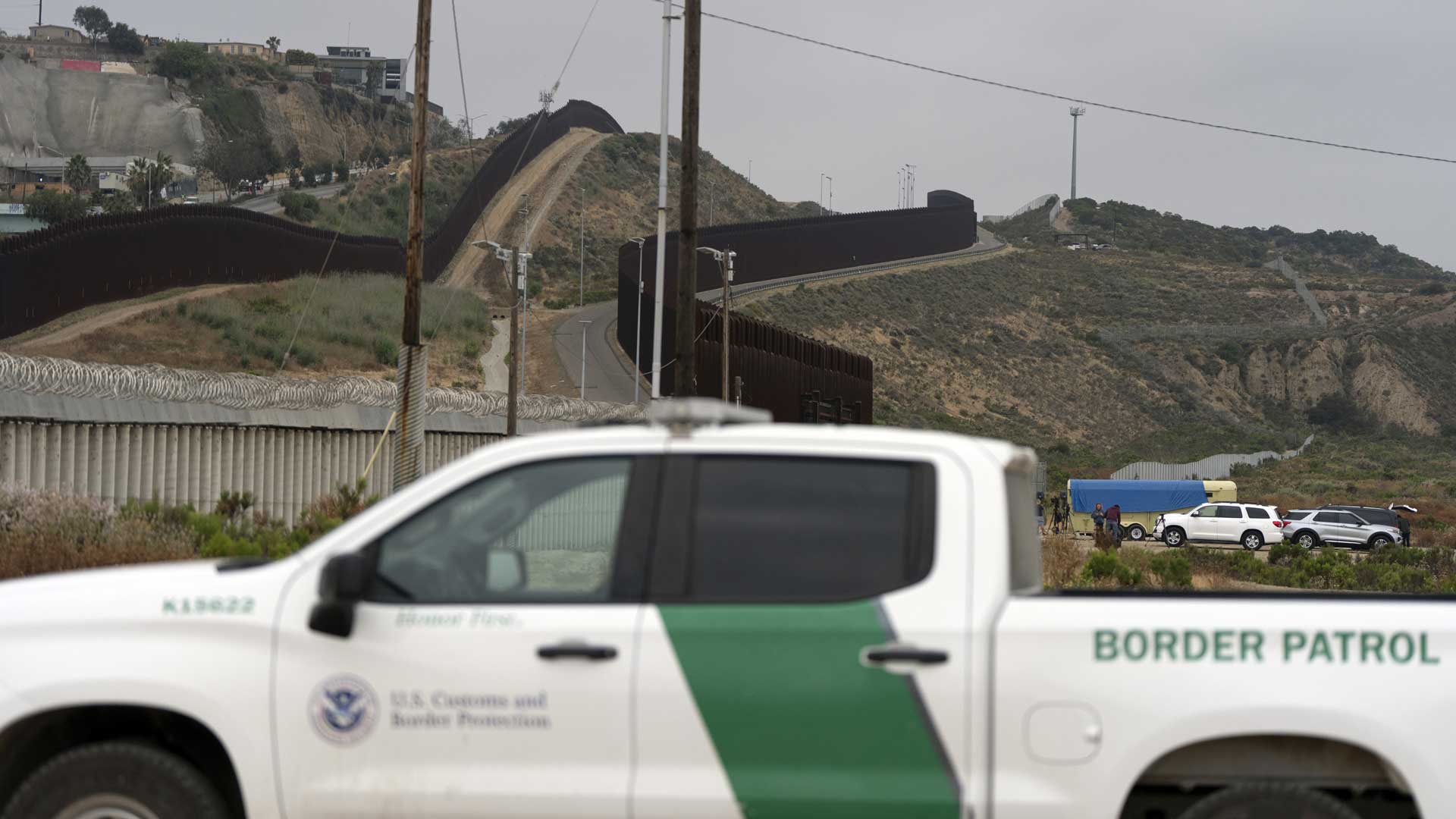 A Border Patrol vehicle sits near border walls separating Tijuana, Mexico, from the United States, Tuesday, June 4, 2024, in San Diego. President Joe Biden has unveiled plans to enact immediate significant restrictions on migrants seeking asylum at the U.S.-Mexico border as the White House tries to neutralize immigration as a political liability ahead of the November elections.
A Border Patrol vehicle sits near border walls separating Tijuana, Mexico, from the United States, Tuesday, June 4, 2024, in San Diego. President Joe Biden has unveiled plans to enact immediate significant restrictions on migrants seeking asylum at the U.S.-Mexico border as the White House tries to neutralize immigration as a political liability ahead of the November elections.
Prop 314 was sent to voters by state Republican lawmakers and would enact a host of new regulations under the umbrella of border security.
It would make it a state crime to enter Arizona from Mexico between ports of entry. The law would require local law enforcement to arrest these migrants, and state judges to deport some of them.
A September poll showed 63% of registered-voter respondents said they would support the border-security measure, despite opposition across the political aisle for both economic and social reasons.
The mayors of both Sierra Vista and Douglas, who have repeatedly asked the federal government to do more on border security, were both opposed to the proposition on the grounds that border communities do not have the funding or manpower for local law enforcement to be enforcing border security.
The Grand Canyon Institute found the measure would cost the state about $325 million annually, with more than half of that for enforcing the part of the law that criminalizes entering the country undocumented — already a federal crime.
The director of the state Department of Corrections, estimates it would cost his department an additional $252 million over five years.
Immigrant rights groups are worried that the new law could create fear and anxiety within immigrant communities, given past instances where similar measures have led to increased scrutiny and racial profiling.
And when states have waded into immigration law in the past, courts have ruled that was illegal not only because it conflicted with federal law, as with Arizona’s 2010 regulation SB1070, but also that it violated civil rights.

By submitting your comments, you hereby give AZPM the right to post your comments and potentially use them in any other form of media operated by this institution.